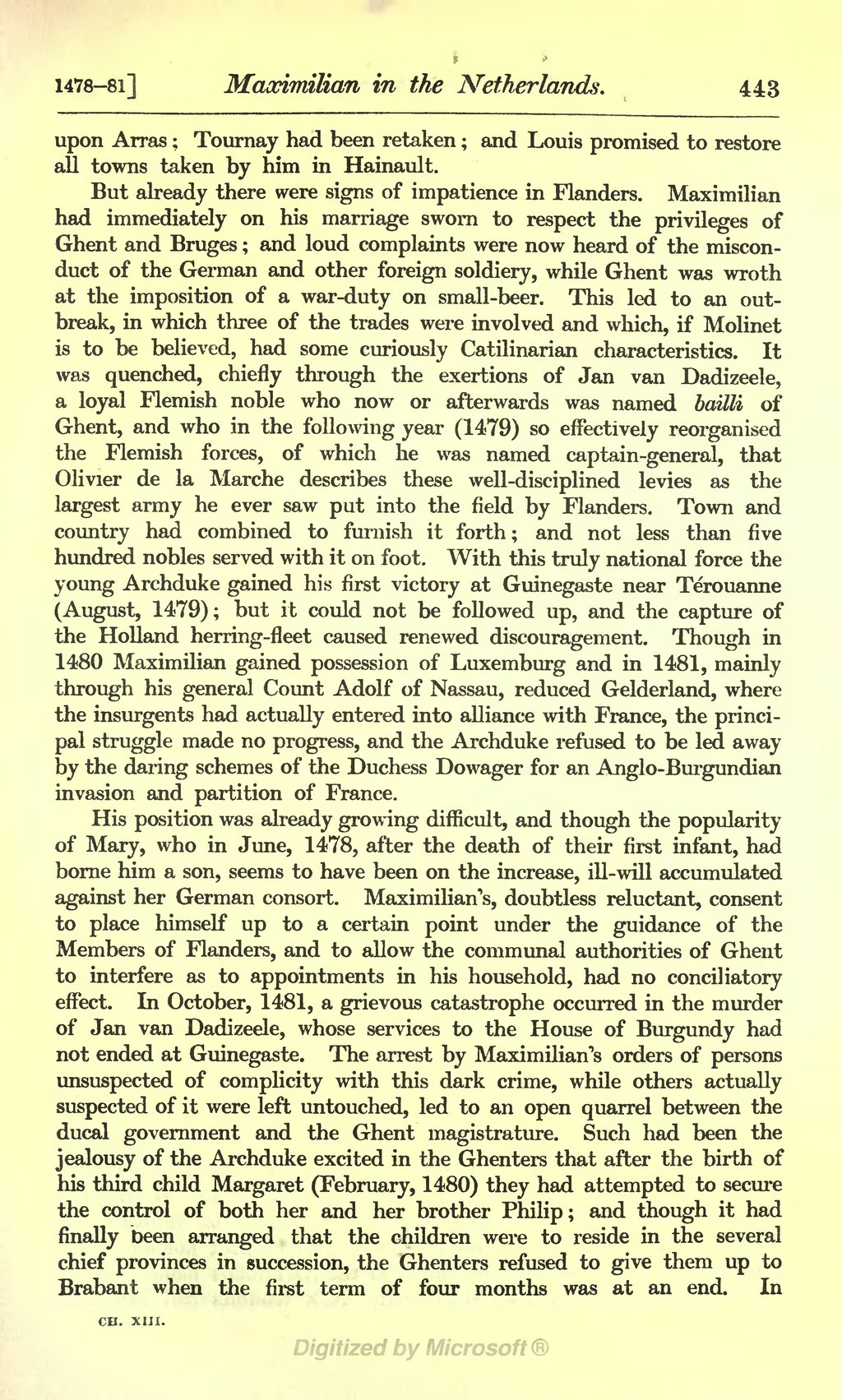upon Arras; Tournay had been retaken; and Louis promised to restore all towns taken by him in Hainault.
But already there were signs of impatience in Flanders. Maximilian had immediately on his marriage sworn to respect the privileges of Ghent and Bruges; and loud complaints were now heard of the misconduct of the German and other foreign soldiery, while Ghent was wroth at the imposition of a war-duty on small-beer. This led to an outbreak, in which three of the trades were involved and which, if Molinet is to be believed, had some curiously Catilinarian characteristics. It was quenched, chiefly through the exertions of Jan van Dadizeele, a loyal Flemish noble who now or afterwards was named Bailli of Ghent, and who in the following year (1479) so effectively reorganised the Flemish forces, of which he was named captain-general, that Olivier de la Marche describes these well-disciplined levies as the largest army he ever saw put into the field by Flanders. Town and country had combined to furnish it forth; and not less than five hundred nobles served with it on foot. With this truly national force the young Archduke gained his first victory at Guinegaste near Terouanne (August, 1479); but it could not be followed up, and the capture of the Holland herring-fleet caused renewed discouragement. Though in 1480 Maximilian gained possession of Luxemburg and in 1481, mainly through his general Count Adolf of Nassau, reduced Gelderland, where the insurgents had actually entered into alliance with France, the principal struggle made no progress, and the Archduke refused to be led away by the daring schemes of the Duchess Dowager for an Anglo-Burgundian invasion and partition of France.
His position was already growing difficult, and though the popularity of Mary, who in June, 1478, after the death of their first infant, had borne him a son, seems to have been on the increase, ill-will accumulated against her German consort. Maximilian's, doubtless reluctant, consent to place himself up to a certain point under the guidance of the Members of Flanders, and to allow the communal authorities of Ghent to interfere as to appointments in his household, had no conciliatory effect. In October, 1481, a grievous catastrophe occurred in the murder of Jan van Dadizeele, whose services to the House of Burgundy had not ended at Guinegaste. The arrest by Maximilian's orders of persons unsuspected of complicity with this dark crime, while others actually suspected of it were left untouched, led to an open quarrel between the ducal government and the Ghent magistrature. Such had been the jealousy of the Archduke excited in the Ghenters that after the birth of his third child Margaret (February, 1480) they had attempted to secure the control of both her and her brother Philip; and though it had finally been arranged that the children were to reside in the several chief provinces in succession, the Ghenters refused to give them up to Brabant when the first term of four months was at an end. In
